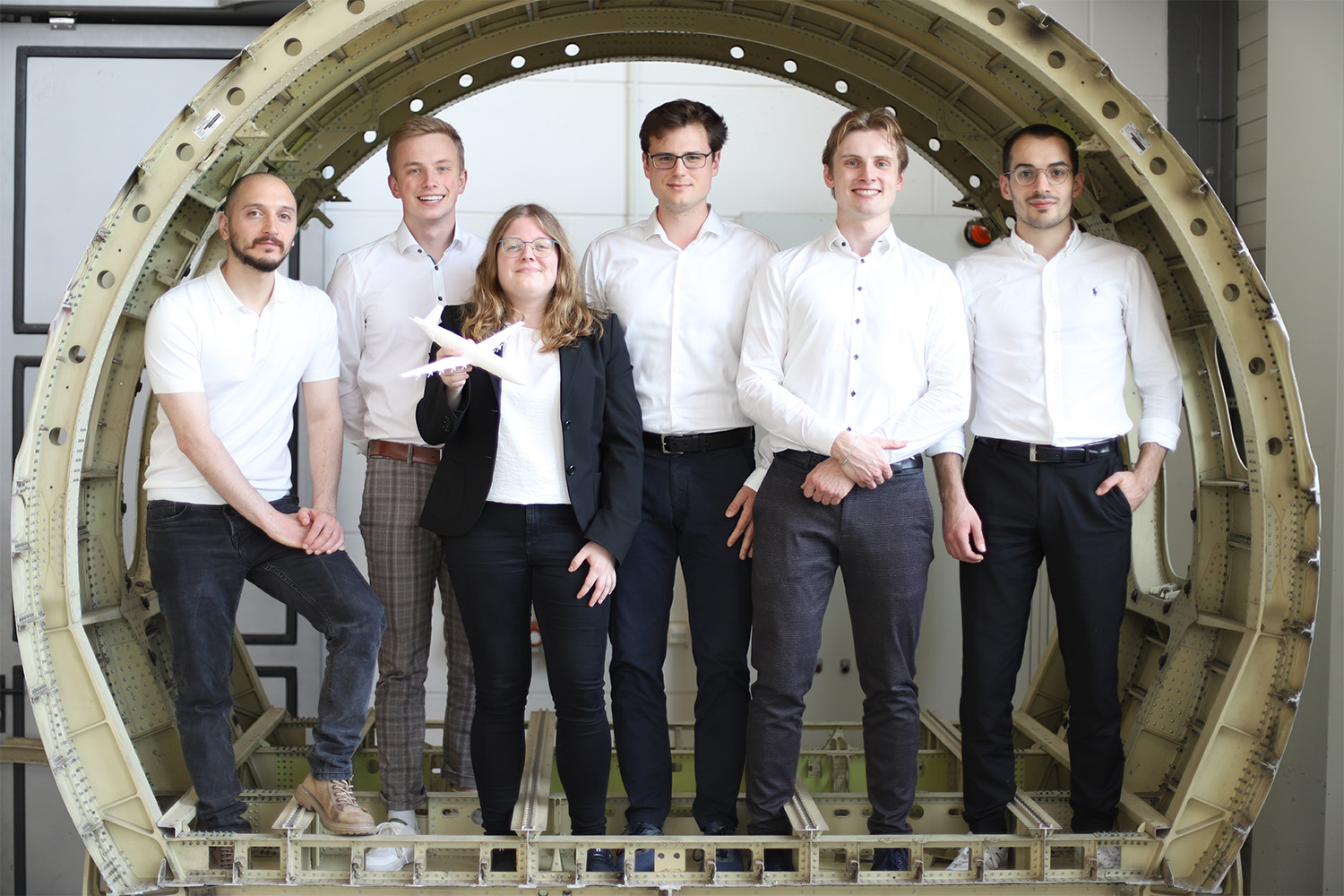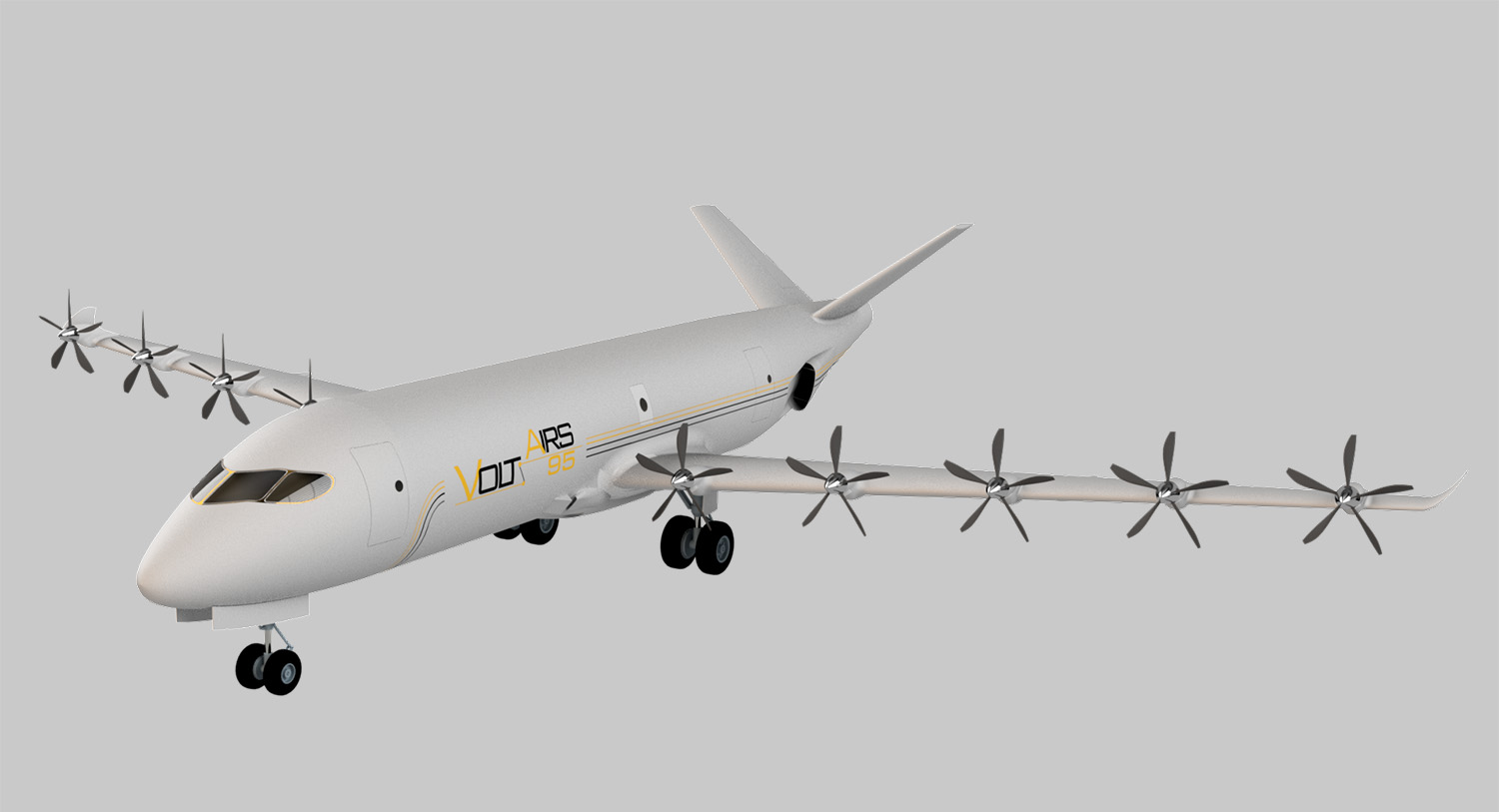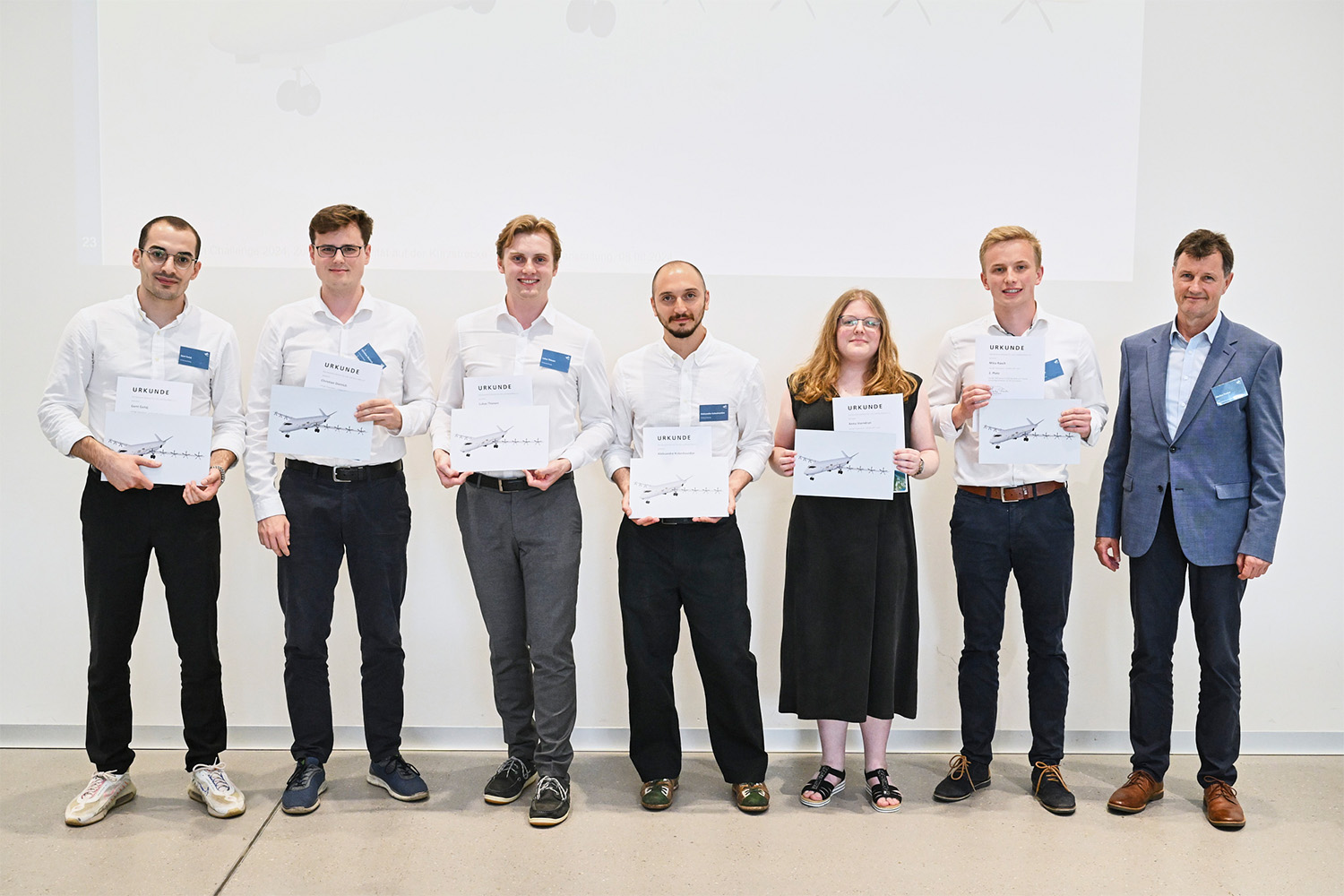Second place for students in DLR Design Challenge Successful design for hybrid-electric short-haul aircraft
For the first time, a team of students from TU Braunschweig took part in the annual DLR Design Challenge, which was established in 2017. Six students of aeronautics, astronautics and sustainable energy technology independently developed a futuristic, sustainable and economical short-haul aircraft for market entry in 2050. On 8 August 2024, they presented their design for a (hybrid) electric aircraft called ‘VoltAirs-95’ at the Centre for Applied Aeronautical Research (ZAL) in Hamburg.

The proud VolAirs-95 team with their aircraft design. From left to right: Aleksandre Kobeshavidze, Mika Rasch, Anna Vorndran, Christian Dietrich, Lukas Thiesen and Gent Gutaj. Photo credits: Radimir Y. Yanev
Aerospace students Christian Dietrich, Gent Gutaj, Aleksandre Kobeshavidze, Mika Rasch and Lukas Thiesen as well as Anna Vorndran (Sustainable Energy Technology student) took on the challenge to develop a futuristic, sustainable and economical short-haul aircraft for the market in 2050 as part of their Master’s programme.
“We are delighted with this success, especially as we are the first team from TU Braunschweig to complete the challenge. The project phase was a very challenging time in which we learned a lot about aircraft design, sustainable propulsion concepts, economical operation and project management. We are proud that the jury recognised the technical plausibility we aimed for by balancing innovation and feasibility,” says team leader Lukas Thiesen.

The (hybrid) electric VoltAirs-95 with its characteristic distributed drives on the wing. Photo credits: Aleksandre Kobeshavidze
Support from the Institute of Aircraft Design and Lightweight Structures
The students received support from the Institute of Aircraft Design and Lightweight Structures (IFL), mainly in the form of advice and guidance from Prof. Ingo Staack, Dr. Wolfgang Heinze and M.Sc Radimir Y. Yanev. The latter recognised the opportunity to offer the TU students a platform with his extensive knowledge and initiated the idea of participation.
“I really liked the multidisciplinary approach and the enthusiasm of the VoltAirs-95 team! The students have perfectly applied and implemented the learning content of their courses in the Design Challenge. I am particularly pleased that the team has designed a realistic and feasible electric aircraft that can be built in this way. Chapeau,” says Prof. Staack.

The team with students from TU Braunschweig and jury chairman Dr Markus Fischer (right). From left: Gent Gutaj, Christian Dietrich, Lukas Thiesen, Aleksandre Kobeshavidze, Anna Vorndran, Mika Rasch. Photo credits: DLR/Leon Jakobs
The concept: electric, with range extender, improved aerodynamics and virtual windows
The design is a (hybrid) electric aircraft with a capacity of 95 passengers and a range of around 900 kilometres. The distributed electric propulsion (DEP) will draw its energy primarily from batteries. The aircraft will carry a range extender for extra long missions and possible reserve flights. The range extender consists of a gas turbine-generator combination that can be fuelled with sustainable aviation fuel. The aircraft also benefits from improved aerodynamics by combining a high aspect ratio wing with a V-tail. The passenger experience is enhanced by virtual windows and a significantly quieter cabin.
This clever combination of innovative technologies has allowed the additional weight to be kept within limits compared to conventional designs, while at the same time reducing the aircraft’s energy consumption by 45 per cent compared to conventional designs.
“With only a 9 per cent increase in operating costs compared to today’s regional aircraft, we have achieved a 94 per cent reduction in climate-damaging emissions! The VoltAirs-95 aircraft would be a new milestone in civil aviation,” says team member Christian Dietrich.
“Perfectly complementary approach”
The broad composition of the team, with each person able to contribute a specialist discipline such as aerodynamics, mass estimation, CAD, operations or propulsion/energy systems, was particularly helpful: “As a ‘non-specialist’ team member with my Sustainable Energy Technology degree programme, I was able to contribute to the project in a very complementary way with a different perspective and my expertise in the field of energy technology. I really enjoyed the interdisciplinary teamwork with my colleagues from the aerospace industry and it was very educational. I hope that in the future more students from other disciplines will dare to get involved in such projects,” adds Anna Vorndran.
The award ceremony is not the end of the journey for the team. They will also present their innovative concept at the German Aerospace Congress 2024, which will take place in Hamburg from 30 September to 2 October 2024.
